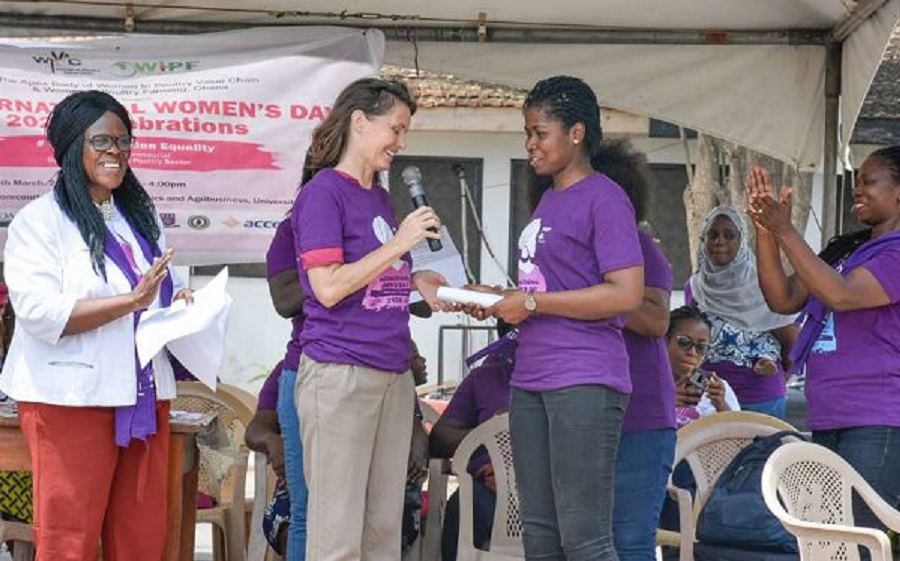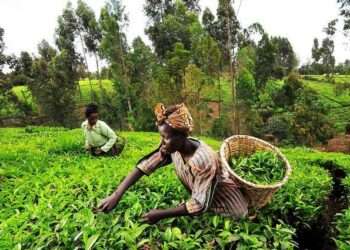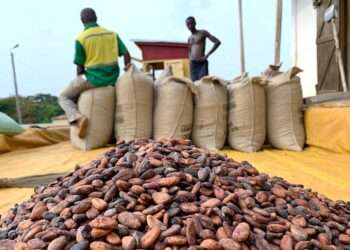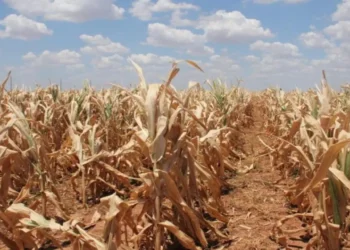The National President of the Women in Poultry Value Chain (WIPVaC), Mrs Victoria Norgbey has highlighted how Covid-19 is disrupting the production cycles of poultry farming in the country.
According to her, poultry farmers across the country are battling with the shortage in supply of day-old chicks. This, she said is because more than 80 percent of all day-old chicks imported in these pandemic times by cargo planes have died. To her, this creates a big gap which local hatcheries cannot fill.
A day-old chick is the newly-hatched chick. It can be considered in the hatchery, and until the farm where it will be housed and fed to provide a broiler chicken, a laying hen, or a breeding cock or hen.
“We are not competitive because some of our inputs are imported. As we speak now, we don’t import day-old chicks,” she said in an interview.
As a result of this shortage, the president of WIPVaC said that their production cycle will change.
According to her, Covid-19 has made their operations “very difficult because our production cycles are going to change because the time that you{we} were ready for the day-old chicks, they are{were} not coming. Your production cycle will change because at the beginning of the year you plan your production cycle. When are you taking your day-old chicks? How are you monitoring it so that when the seasons are with us, like Christmas you can have more eggs to sell? ”
She indicated that, but for the patronage of consumers who are more conscious of their health local poultry production will further slump.
“We are not that competitive. So the consumers, those ones who are not too health conscious will prefer to go for an imported chicken meat but those who are health conscious will still strive to buy the locally produced ones.”
According to a 2019 report by the Netherlands Enterprise Agency on Ghana’s poultry sector, because of the less quality day-old chicks produced by local hatcheries, many poultry farmers choose to import.
“Even though there are local hatcheries that produce day-old chicks, the quality is generally low, so most poultry farmers prefer to buy imported day-old chicks, especially layer day-old chicks. In 2018, Ghana imported 511,960 broiler day-old chicks and 7,130,999 layer day-old chicks,” the report stated.
The report also makes clear that at the moment, 15 local hatcheries and 8 importers are the primary producers of commercial day-old chicks in Ghana. The importers mostly import the day-old chicks from the Netherlands and Belgium. However, the report goes on to indicate that “demand for day-old chicks exceeds supply by both local hatcheries and imports.”
Currently, there is yet to be passed into law a hatchery bill, which will ensure that quality day-old chicks are produced from domestic hatcheries.

But the Minister of Food and Agriculture, Dr. Owusu Afriyie Akoto, has said that, the poultry component of “Rearing for Food and Jobs” is key to the government of Ghana because Ghana cannot continue to import USD 380 million of poultry meat every year when 20 years ago the country exported chicken to her neighbor.
According to the Minister it is the focus of government to build the right infrastructure to promote local production.
In what seems to be as an intervention from government, the Agricultural Development Bank (ADB) in a presser on Wednesday May 20, 2020, announced a 500 million cedis loan for poultry farmers in six regions in the country. The regions include the Bono, Ashanti, Eastern, Greater Accra, Central and the Western Regions.
This action according the Managing Director of ADB, John Kofi Mensah, is to reduce the importation of poultry into the country and strengthen the competitiveness of Ghana’s poultry sector.





















